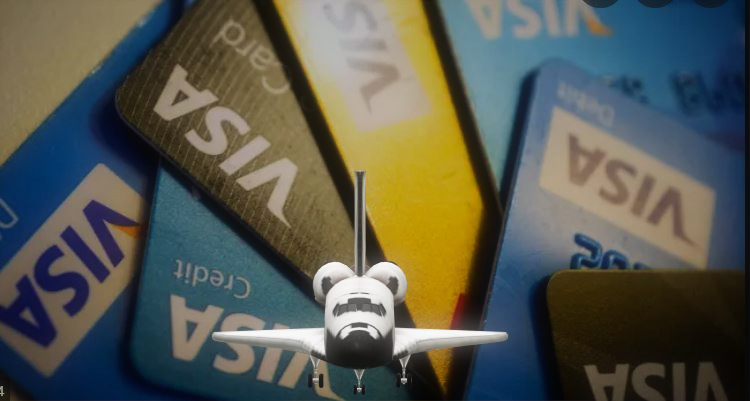We’ve all been there – it’s the end of the month and you have close to nothing left in your spending account. You don’t live an extravagant lifestyle, neither do you make impulse purchases – yet somehow, you’re left with nothing at the end of every month. So, where exactly does all the money go?

If this is a concept that seems all too familiar to you, you’ve come to the right place. Today, we look at 5 expert tips to help track your spending, in a bid to give you an accurate picture of exactly where your money is going. Keep on reading to find out more!
- Start With Your Bank Statement
As scary as this may seem (out of sight, out of mind, right?), the first place you need to take a trip to is your bank statement. Aside from having to come face to face with your dwindling funds, it is important that you take the time to pinpoint your money habits. Start off by taking inventory of all of your accounts, including your checking account and all credit cards you have. Analysing your accounts will help you identify where or what you’re spending on on a monthly basis. Once you have identified unnecessary expenses such as that expensive coffee you purchase every morning, you’ll be much better equipped to make smarter purchasing decisions that leave you in a better financial position at the end of every month.
Expert tip: If you struggle with budgeting, we highly recommend creating a separate spending account. The main benefit of keeping the two accounts separate is to avoid the temptation of dipping into your savings for non-emergency items. Alternatively, you could consult with a financial advisor in Adelaide who will be able to create strategies for eliminating financial risk and building wealth over the long term.
- Review Your Spending
Now that you’ve performed an in-depth analysis of exactly where your money is going, it’s time to review your spending and make amendments where necessary. Here are some questions you need to be asking when reviewing your expenses:
- What fixed expenses do I have?
- What fixed expenses do I not use? (streaming services, monthly subscriptions etc)
- Are there any expenses I can do without?
- What categories did I spend the most money on?
- Am I spending more money than I bring in?
All of these questions are incredibly important when tracking your spending, but the last question is definitely the most important. Spending more money than you make is hole-digging habit that cannot be sustained for long. We encourage you to keep your spending within your monthly income so that you’re living within your means and not creating debt.
- Track As You Spend
If you’re up for it, tracking as you spend can be an incredibly helpful tool when trying to figure out exactly where your hard earned money is going. You could go old school with a pen and notebook, or you could simply utilise the notes application in your phone. Logging your spending in the moment helps you be attentive to how often you spend, and may even encourage you to think carefully about each purchase that you make.
- Use An Expense Tracking App
Perhaps writing down each expense isn’t your cup of tea, and that is totally okay! Thanks to the power of technology, we now have a plethora of expense/budget tracking apps available at our disposal. Budgeting apps such as You Need a Budget and Mint are incredibly handy tools that are designed to assist you in allocating spendable income each month depending on what you’re taking in and paying out. Keeping track of your income and expenses can be complicated – this comes as no surprise. As such, a good budgeting app can help you spend and save both safely and wisely.
- Keep Up To Date
Life is never stagnant, and your expenses in January may look completely different from your expenses in February. In order to really track exactly where your money is going, it is important to always keep up to date. Reviewing your spending and your budget periodically can help to reveal trends you may not otherwise notice. Of course, you’ll have one-time expenses in some months that won’t regularly reappear, such as emergency doctor’s bills or repairs. You can use savings to cover these unexpected expenses, or — better yet — set up a special category in your budget for them. At the end of every month, be sure to shift any leftover money to a savings account that offers the potential to earn interest.
_____________
At the end of the day, tracking your expenses isn’t about not spending any money; it’s about choosing how to spend based on what is most important to you. There really is no right or wrong way to track your spending, so be sure to try different methods until you find one that works best for you.
What are some of your tried-and-tested ways of figuring out how much you are spending? Be sure to leave a comment and let us know.

 Being a property owner is an incredible feeling, and it comes with untold benefits. What you may overlook is how consuming it can be to manage your property while also living your life and looking out for that next investment opportunity. Fortunately, there is a solution that has helped millions of homeowners come out on top, and able to mitigate the direct property management and bypass all the drama that can come with the rental market. Hiring a property manager is a worthy investment, but they are not all made equal. If you’re on the hunt for a property manager that will simplify your life, here is what you need to look out for so that you secure a great manager.
Being a property owner is an incredible feeling, and it comes with untold benefits. What you may overlook is how consuming it can be to manage your property while also living your life and looking out for that next investment opportunity. Fortunately, there is a solution that has helped millions of homeowners come out on top, and able to mitigate the direct property management and bypass all the drama that can come with the rental market. Hiring a property manager is a worthy investment, but they are not all made equal. If you’re on the hunt for a property manager that will simplify your life, here is what you need to look out for so that you secure a great manager.






